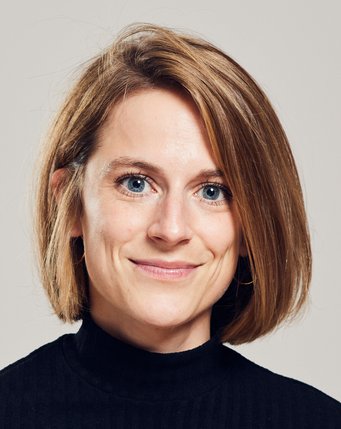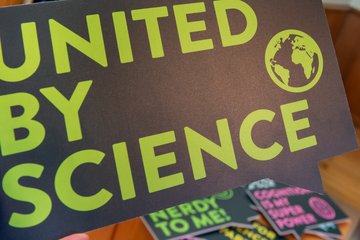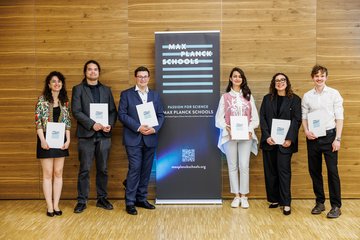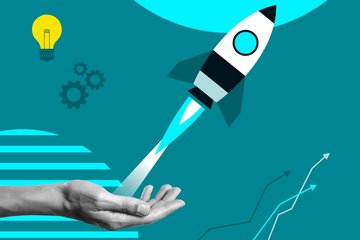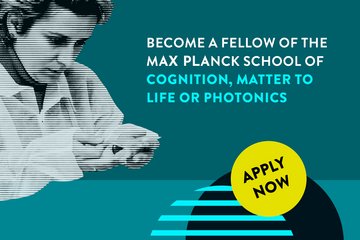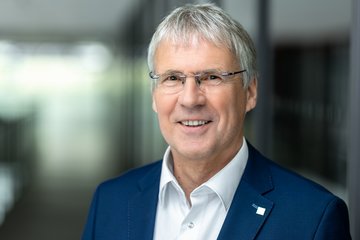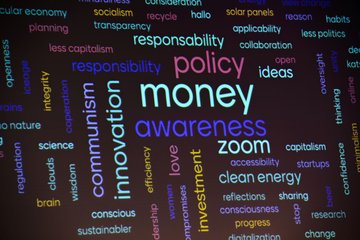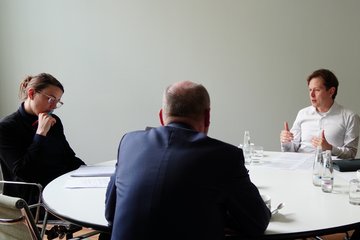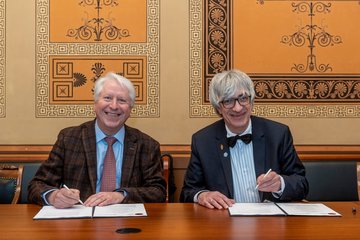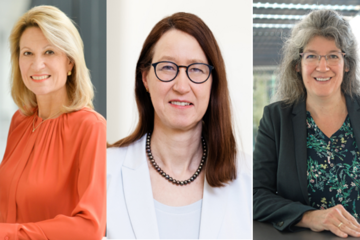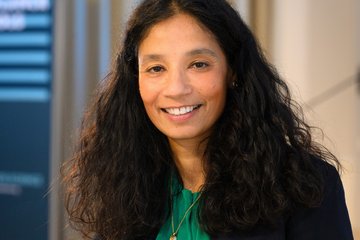“Contributing to new knowledge with curiosity”
Interview with Clinician Scientist Program candidate Anne Felsenheimer
Anne Felsenheimer, MD, started at the end of 2022 as one of the first candidates in the novel Clinician Scientist Program (CSP) of the Max Planck School of Cognition (MPS Cognition). The program addresses ambitious early-career clinicians who want to combine clinical training with excellent research in the fields of psychiatry and (cognitive) neurology and further qualify within a unique network of outstanding scientists. Last year, Anne was selected by ZEIT for the Zia-"Visible Women in Science" program. Reason enough to talk to her about her motivation for the CSP at the Max Planck School of Cognition and her ambitions for the future:
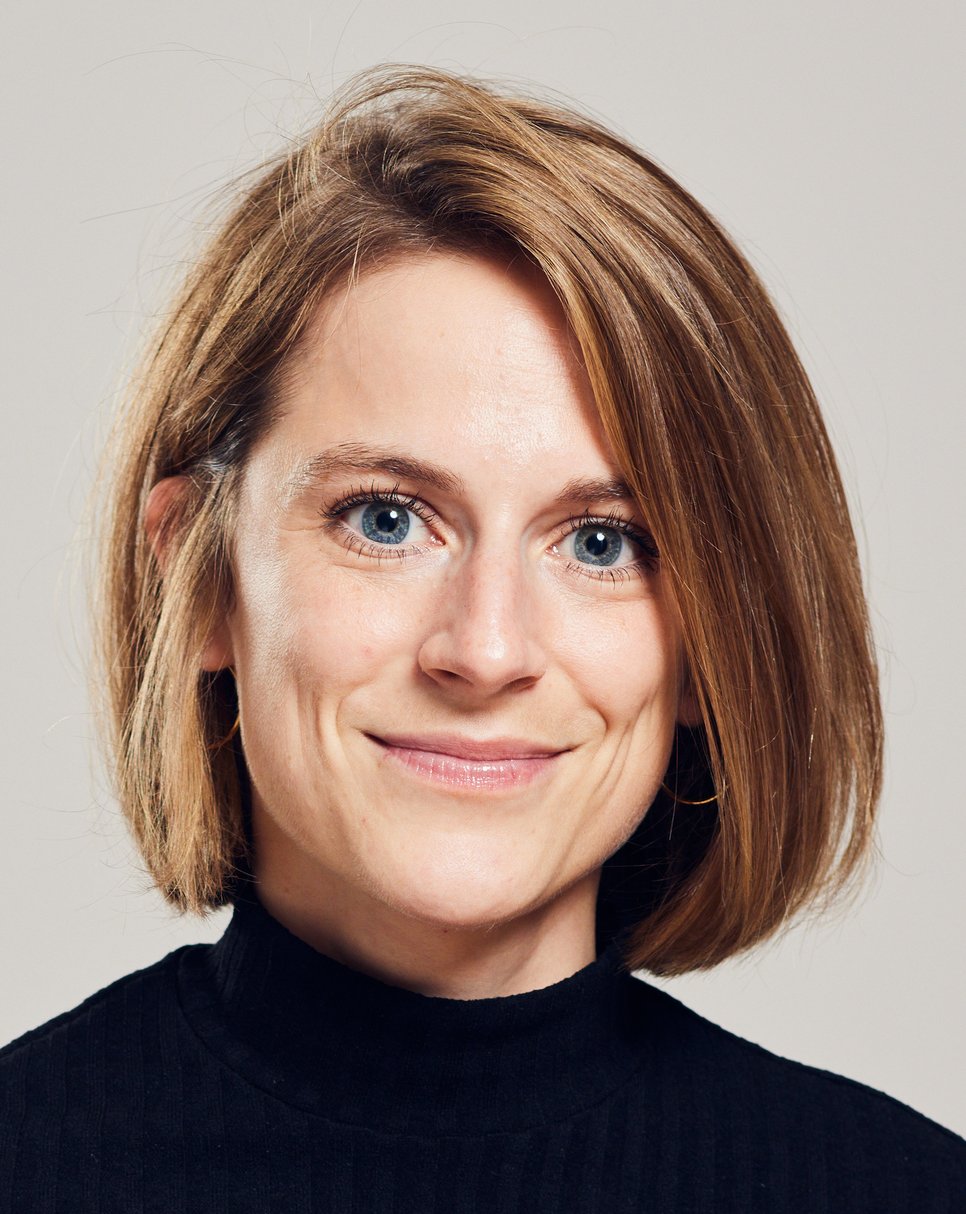
Anne, your resume so far reads very impressive: You have successfully completed several courses of study, have been to Nashville for a research stay, a Female Science Talent at Falling Walls 2022, and have been a PhD candidate at the MPS Cognition since fall. What were your motivations for applying to the program?
To prepare the best possible path into research. It wasn't clear for a long time that I wanted to go into research at all - on the contrary, after my bachelor's degree in psychology, I started medical school to become a clinically active psychiatrist. However, I have always been interested across disciplines. Research is one of the few fields of work that allows for this interdisciplinarity. It offers the best opportunities to work across disciplines and thus bring in my knowledge from each of the programs. Another motivation for working in research is, that I can contribute to new knowledge with my curiosity and own perspective.
Can you briefly describe what your research is about? What is your goal?
I am particularly interested in integrating different disciplines and perspectives on psychiatric disorders. One example of this is the combination of linguistics and psychopathology, where I look at understanding irony and metaphor in individuals with borderline personality disorder or schizophrenia. Another example is looking at the interaction of mind and body. This not only influences our perception, but can also explain why certain individuals have a different perception because of it. My goal here is to take an explanatory view. Instead of asking: What is not working? I want to find out: How is it perceived and why?
The highly interdisciplinary Clinician Scientist Program is primarily aimed at young physicians who want to work in research in the long term or fruther develop their skills and knowledge in this area. What makes the program so special from your point of view and where do you see specific advantages?
The MD PhD is usually done during the study, is unpaid and focuses more on practical application than on scientific work. Due to this, the scientific quality and depth necessarily suffers. The interdisciplinary Clinician Scientist Program is therefore especially attractive for physicians who want pursue scientific work in addition - it brings clinical practice into research.
You are currently in your third, so-called lab rotation - a kind of short term PhD residency at different locations of the wide-ranging partner network of the Schools. What experiences do you take with you from this
Werner Heisenberg once said "What we observe is not nature itself, but nature exposed to our method of inquiry" - each research group has its own methodology and theory for understanding human cognition, and it fascinates me how the same topic can be approached from very different perspectives and angels. As a result, the lab rotations not only give me exciting ideas for my own research, but also point out what I need to consider when choosing my methodology.
Do you have any concrete ideas about how the next few years might develop, or rather, what do you wish for the future?
So far, I am very happy with how the next years will look like - the PhD offers me many interesting opportunities. I am looking forward to keep learning new topics and methods, to exchange ideas with so many exciting scientists. In the future, I would like to continue working in an interdisciplinary and international environment.
Last year you were selected as one of 25 female scientists for the new ZEIT program Zia - Visible Women in Science.
What does this award mean to you and has anything changed as a result?
Since then, I have been increasingly rethinking my role and the responsibility everyone has to change the future. When graduating from high school, I was unaware of the implicit effects of social background and gender, and I thought opportunities were based only on talent and performance. Going to university, I realized for the first time that it is also i. e. one's clothes, wine knowledge, pronunciation - in short, a certain habitus that affects decisions quite independently of talent and performance. Especially after graduation, I became aware of the additional lack of privileges as a woman. It is still predominantly men who are decision-makers at the top of politics - and also science policy - and in universities. It was through Zia, in particular, that I realized that reducing this inequality requires visibility above all else. A woman and a first-time academic on websites of institutes and universities makes it much more conceivable for others who are in the same situation to also pursue a career in science and also to apply.
Do you have a role model or mentor who inspires you or accompanies you on your way?
Mentors are incredibly important. For me, they are close friends and other scientists who inspire and support me. I used to be intimidated by the question of a role model, however, because it always entails a certain intellectual representation. On the one hand, because finding a role model presupposes prior cultural knowledge that not everyone:r has. On the other hand, because a decisive factor of a role model is that one recognizes oneself in it and feels inspired by the path. However, the proportion of female scientists without an academic educational background has so far been low.
What do you think still needs to happen for women in science?
In principle, many areas of science still lack the insight that something has to be done. If this insight grows, and with it the debate about it, the first big step would be taken.
